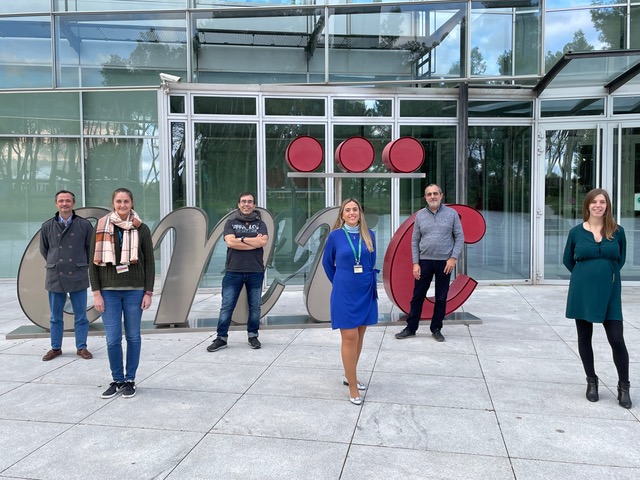
Guadalupe Sabio, centre in blue, and her team at the CNIC. Source: CNIC
The research group at the National Centre for Cardiovascular Research led by Guadalupe Sabio, winner of the 2018 Fundación Occident Research Award, has discovered two proteins that are essential for the metabolism of the heart in newborns. Published in the scientific journal PLoS Biology, the work has been published in Infosalus and SINC Agency. This study is the result of the line of research for which Sabio was awarded in the first edition of these prizes.
The malfunctioning of the p38δ and p38γ proteins may be linked to some congenital cardiometabolic diseases for which the cause is not yet known. The study suggests that a diet rich in fatty acids may prevent these diseases.
The heart in the prenatal period and during the first days after birth uses glucose as its main source of energy. After birth, however, the heart undergoes a growth spurt and needs a more efficient energy supply, so it switches from using glucose to using fatty acids for nutrition.
Certain disturbances arising from this metabolic change can prevent the heart from receiving sufficient energy and thus lead to irreversible cardiac damage. Indeed, the effects may go beyond the heart and cause other metabolic diseases such as diabetes or a reduction in thermoregulatory capacity.
However, this research suggests that a diet rich in fatty acids during pregnancy and lactation may prevent or mitigate these harms. In mouse models, Sabio and her team found that when mothers were fed a high-fat diet, newborns showed no heart damage or symptoms of diabetes, even when the two p38 proteins were not working properly.

